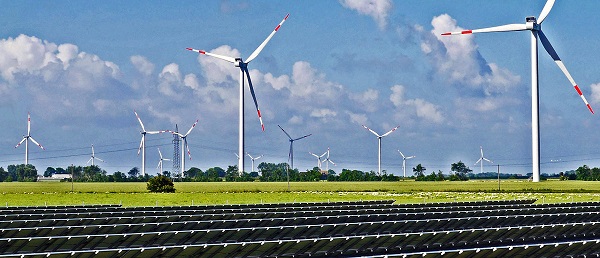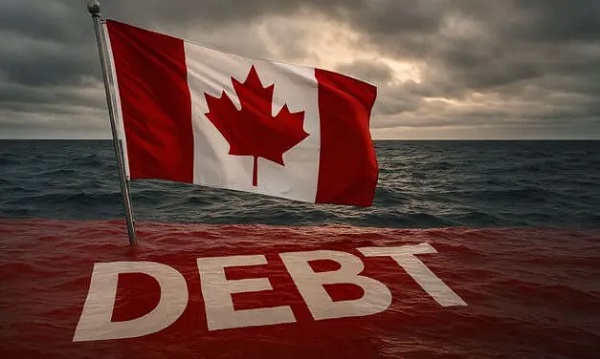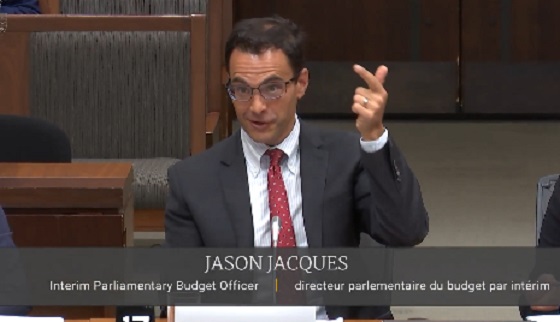Business
Gun Buyback Boondoggle will create criminals out of law abiding citizens while taking taxpayer dollars and directing policing away from actual criminals

Not only do police chiefs not want to go after legal gun owners to help the federal government’s gun buyback program.. even if they did want to, they don’t have the resources.
But that hasn’t stopped Mark Carney’s government from implementing a program that will cost at least three quarters of a billion dollars which in effect will create a new class of criminals. Millions of Canadians who followed the stringent rules to obtain firearms will become criminals if they choose not to turn in guns they bought, used, and stored legally for years or even generations.
In an effort to appear to be doing ‘something’ about gun crime Mark Carney’s government has created this expensive program which is already being called a boondoggle.
The Conservative Opposition is pointing out just how ludicrous this new program is in the parliamentary hearing where MP Andrew Lawton asks representatives of Canadian police forces if this law will help curve crime, and if their forces are prepared to help implement the new law.
Video from the Canadian Coalition for Firearms Rights
The federal government is rolling out the law in the Cape Breton region of Nova Scotia. Cape Breton gun owners will be the first to be required to hand in the firearms which the federal government is in effect confiscating.
For it’s part, the Canadian Taxpayers Federation is hoping to head off this potential billion dollar boondoggle before the feds spend hundreds of millions of dollars. The CTF is offering free legal advice to Cape Bretoners threatened by the gun buyback program.
From the Canadian Taxpayers Federation
CTF offering free legal advice to Cape Breton gun owners targeted by federal gun grab
The Canadian Taxpayers Federation is offering free legal advice to Cape Breton firearms owners after the federal government announced a pilot project to confiscate firearms.
“If you’re a gun owner in Cape Breton and you want to know your rights, we are here for you,” said Devin Drover, CTF General Counsel. “Ottawa just extended the amnesty until at least October 2026 and you do not have to hand anything over right now.
“Police officers across Canada are saying that confiscating guns from licenced gun owners won’t reduce gun crime so we want to make sure those law-abiding citizens have the legal advice they need.”
The federal government has banned more than 2,500 models of firearms since 2020. Now it is targeting Cape Breton gun owners directly with this confiscation trial, despite warnings from experts that the program will not work.
“It won’t impact crime rates,” said Doug King, professor of justice studies at Mount Royal University.
The National Police Federation, representing RCMP officers, has also warned the scheme “diverts extremely important personnel, resources, and funding away from addressing the more immediate and growing threat of criminal use of illegal firearms.”
Meanwhile, costs continue to escalate. The Parliamentary Budget Officer estimates compensation alone could reach $756 million, with some experts warning the final tab could climb into the billions.
“Confiscating guns from licensed, law-abiding Canadians won’t stop criminals from getting their hands on illegal guns,” said Gage Haubrich, CTF Prairie Director. “Taxpayers should not be left footing the bill for a confiscation scheme that won’t make Canadians safer.”
Cape Breton gun owners seeking free legal advice regarding the firearm confiscation can contact the CTF legal team by emailing [email protected].
Business
Natural gas bans are fuelling higher energy costs

This article supplied by Troy Media.
 By Roslyn Kunin
By Roslyn Kunin
Governments are pulling the plug on natural gas with no real backup plan in place and Canadians are paying the price
Banning natural gas and pushing electricity without enough supply is a recipe for soaring energy costs and blackouts. Politicians may forget the basics of economics, but supply and demand won’t go away.
When the supply of anything goes up, its price falls. Limit or decrease supply and the price rises. Demand works in the opposite direction—high demand drives up prices, and lower demand brings them down.
Like gravity, the law of supply and demand is always there, but many politicians behave as though it doesn’t exist. Nowhere is that clearer than in energy policy, where environmental goals are prioritized while economic realities are sidelined. The drive to eliminate energy-related emissions
in just a few years may sound noble, but it ignores practical limits, and Canadians are paying the price.
Take natural gas. It emits far less carbon than coal or oil. In Canada, most natural gas comes from Alberta and British Columbia, and it’s one of the country’s most affordable and secure energy sources. Despite this, several jurisdictions in B.C. are banning its use in new and renovated buildings—moves encouraged by federal emissions targets and climate incentives.
These policies may be well-intentioned, but they ignore a basic fact: people still need to heat their homes and cook their meals. Without gas, they’ll be forced to use electricity. But unlike gas, electricity is already in short supply and getting more expensive. Our current generating capacity can’t keep up with rising demand, and that’s before we even consider the added strain from electric vehicles, data centres and energy-hungry artificial intelligence.
British Columbia’s Site C dam, a multibillion-dollar hydroelectric project under construction on the Peace River, is expected to generate enough electricity for 450,000 homes when complete. But all of that power is already spoken for. There are no Site C-scale replacements on the horizon. Meanwhile, our distribution infrastructure can’t meet today’s needs, let alone tomorrow’s.
In one recent case, buildings planning to install EV chargers were told by B.C. Hydro, the Crown corporation responsible for electricity in B.C., that there wasn’t enough power available. Major housing developments have even been blocked due to limited electricity supply.
These constraints aren’t just technical—they’re already making it harder to build new housing. Canadians may accept higher costs for environmental gains, but pushing up both housing and energy bills risks crossing a line. Banning natural gas makes it harder to build and maintain affordable homes, directly undermining what governments claim to support. In homes forced to switch from gas to electricity, heating and hot water bills could quadruple. Reliability also drops. Builders are now being advised to install backup generators to handle expected power outages—ironically, those generators will often run on the very natural gas being banned.
We can no longer assume the government will keep the lights on. That’s a serious blow to Canadians’ standard of living.
Some argue these trade-offs are justified if they cut emissions. But even that goal is questionable. The gas we don’t burn here will simply be sold elsewhere—likely to countries still relying on coal, oil or even dung. Because emissions don’t respect borders, the global climate impact remains the same, or worse.
Of course, Canada could go further and stop producing natural gas altogether. Leave it all in the ground. But doing so would deliver a major blow to our economy and standard of living: something no elected government is likely to survive. Alternatively, Canada could export more of its low-cost, lower-emission natural gas to displace dirtier fuels abroad. That would reduce global emissions more effectively than restricting gas at home.
Canadians care about the environment. But we need smart, balanced policies—ones that use our resources wisely, not wastefully. We can pursue conservation and cleaner technologies while still recognizing that economic laws apply, even when they’re inconvenient.
It’s not about choosing between prosperity and the planet. It’s about realizing that ignoring the fundamentals—like supply and demand—comes at a cost most Canadians can’t afford.
Dr. Roslyn Kunin is a respected Canadian economist known for her extensive work in economic forecasting, public policy, and labour market analysis. She has held various prominent roles, including serving as the regional director for the federal government’s Department of Employment and Immigration in British Columbia and Yukon and as an adjunct professor at the University of British Columbia. Dr. Kunin is also recognized for her contributions to economic development, particularly in Western Canada.
Troy Media empowers Canadian community news outlets by providing independent, insightful analysis and commentary. Our mission is to support local media in helping Canadians stay informed and engaged by delivering reliable content that strengthens community connections and deepens understanding across the country.
Artificial Intelligence
The App That Pays You to Give Away Your Voice

What sounds like side hustle money is really a permanent trade of privacy for pennies
|
|
-

 Business1 day ago
Business1 day agoBC Ferries Deal With China Risks Canada’s Security
-

 Business2 days ago
Business2 days agoDepartment of Energy returning $13B climate agenda funding to taxpayers
-

 Business2 days ago
Business2 days agoCanada Is Still Paying The Price For Trudeau’s Fiscal Delusions
-

 International2 days ago
International2 days agoTrump says he won’t back down on Antifa terrorism designation
-

 Censorship Industrial Complex1 day ago
Censorship Industrial Complex1 day agoTotal Surveillance, Censorship, And Behavior Control Are Real Goals Of Digital ID Advocates
-

 Daily Caller2 days ago
Daily Caller2 days agoShale Execs Complain Of ‘Broken’ Prospects In New Survey
-

 International15 hours ago
International15 hours agoTrump authorizes “full force” to stop Antifa attacks in Portland
-

 COVID-192 days ago
COVID-192 days agoSecond Massive Population Study Finds COVID-19 “Vaccines” Increase Risk of 6 Major Cancers





